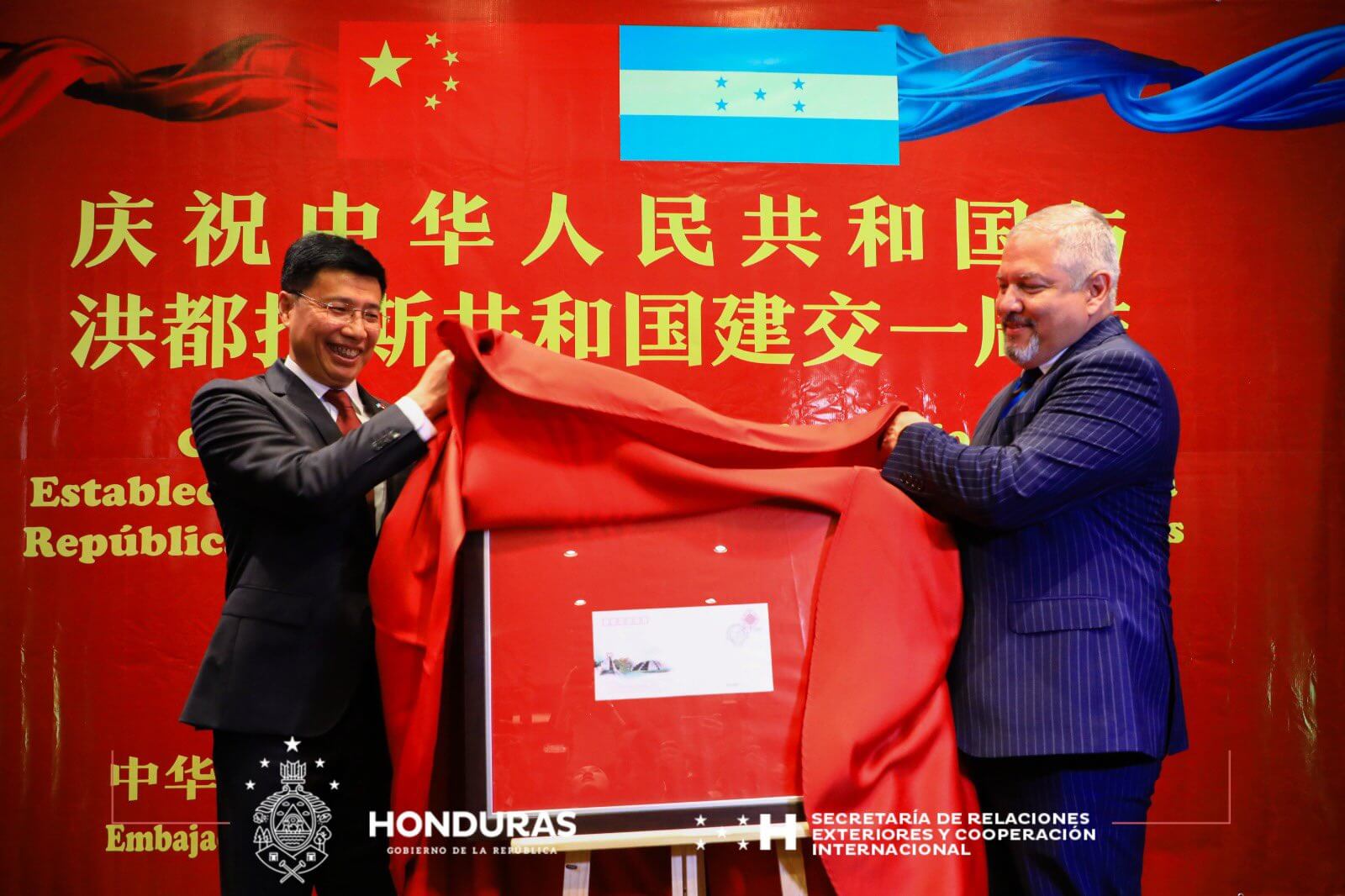Concerns Arise Over Honduras-China Trade Agreement
Photo: Chancery of Honduras.
Honduras faces significant challenges in the negotiation process of a Free Trade Agreement (FTA) with China, a situation that has generated concerns both within the government and the private sector, according to Honduran media.
Since the establishment of diplomatic relations with China in March last year, Honduras has been trying to secure a trade agreement that favors its economy. However, the negotiation has encountered obstacles that make it difficult to reach a consensus favorable to both parties.
China has proposed conditions that, according to Honduran authorities, are not advantageous for the Central American country. The Minister of Economic Development, Fredis Cerrato, recently pointed out that the Chinese demands, particularly in terms of tariffs and market access, could jeopardize key sectors of the Honduran economy.
These concerns have been shared by the Honduran Council of Private Enterprise (Cohep), which has insisted on the need to protect investment and employment in the country.
However, Graco Perez, an expert in international law, pointed out that Honduras has not increased its production of key products such as shrimp, coffee or bananas, and that China is trying to buy these products at a significantly lower price than Taiwan was paying in the past.
In addition, the Honduran government has admitted that China will not finance any major projects until an FTA is signed.
The imbalance in the trade relationship between the two countries is evident. During the first quarter of 2024, Honduras exported US$24.9 million dollars to China, while imports from China amounted to US$1.1 billion dollars, reflecting an asymmetric trade relationship. This imbalance raises doubts among Honduran authorities about Honduras’ ability to derive real benefits from an FTA with China.
In addition, the historical context of FTAs in Latin America has shown that the benefits of these agreements may be limited. Examples such as Peru and Costa Rica, which have faced difficulties after signing trade agreements with China, underscore the need for careful analysis before committing to a treaty.
In the case of Peru, an increase in Chinese imports negatively affected local industrial sectors, while Costa Rica has faced intense competition in several economic sectors.
Honduran Foreign Minister Eduardo Enrique Reina has stated that the government is committed to protecting the country’s interests and achieving an agreement that does not repeat the mistakes of the past.
However, experts such as economist Ismael Zepeda Galo have criticized the lack of an alternative approach to the FTA, noting that the Honduran government could be repeating past mistakes by not considering the asymmetries and potential harms of a poorly negotiated agreement.
Main source:
Condiciones propuestas por China a Honduras no son aceptables – El Heraldo.
Other related sources:
Canciller Enrique Reina espera que TLC con China sea mejor que otros tratados – El Heraldo.
China se impone como imperio en la negociación del TLC con Honduras – La Prensa.

